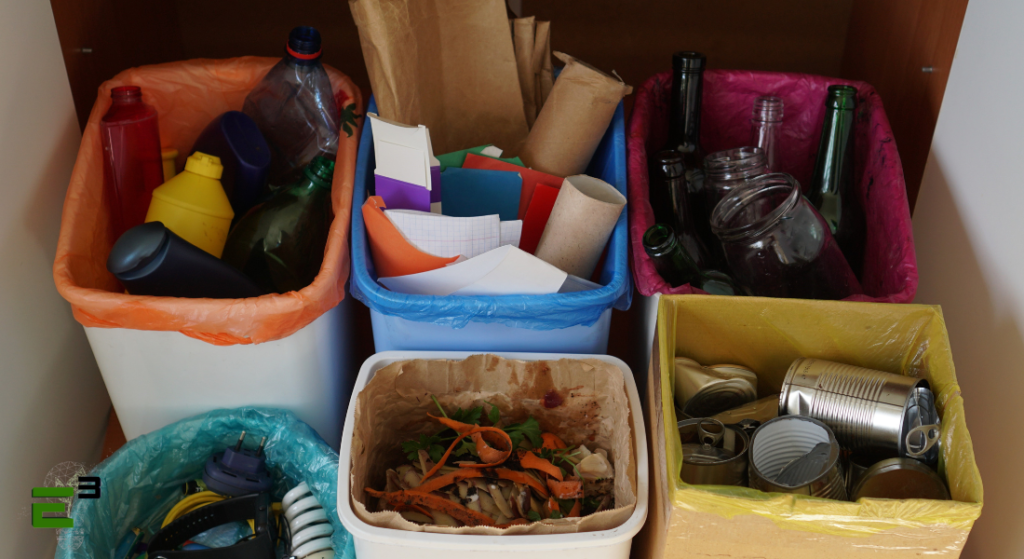Incorporating sustainable practices into our daily residential routines emerges as an effective strategy to strengthen environmental preservation. In this context, three fundamental initiatives stand out for adoption. Firstly, recycling becomes a crucial habit, requiring proper segregation of waste into categories such as recyclable, compostable, and non-recyclable. Following that, emphasis is placed on energy conservation, advocating for the replacement of conventional light bulbs with more efficient technologies, deactivating unused electronic devices, and potentially integrating renewable energy sources like solar panels. Lastly, water conservation proves vital, involving leak repairs, the adoption of water-saving devices, and the promotion of conscious consumption habits. When systematically implemented, these practices significantly contribute to environmental sustainability within our homes.
Energy Conservation at Home

Implementing energy-saving practices at home involves essential measures to minimize consumption and embrace more sustainable sources. A key step is replacing incandescent bulbs with LED lights, known for their lower energy consumption and significantly longer lifespan, thereby enhancing energy efficiency. Additionally, turning off electronic devices and lights when not in use is a simple yet effective action to reduce energy waste. Using energy-saving devices whenever possible further amplifies these efforts, promoting overall energy efficiency. A more advanced and environmentally-friendly approach is considering the installation of solar panels in your residence. This initiative not only reduces dependence on non-renewable sources but also generates clean and sustainable electricity, exemplifying a commitment to energy efficiency. Collectively, these practices not only decrease the domestic carbon footprint but also contribute to the global transition toward a more sustainable and ecologically conscious energy model.
Recycling Initiatives at Home

Recycling plays a pivotal role in fostering environmental sustainability, and implementing effective practices at home can make a significant impact. First and foremost, ensure proper waste management by segregating your garbage into suitable categories for recycling, composting, and non-recyclable waste. Take care to recycle paper, plastic, glass, and metal appropriately, adhering to local guidelines and regulations. Beyond recycling, reducing the consumption of disposable products is equally vital. Opt for reusable alternatives such as water bottles, durable shopping bags, and reusable food containers. By conscientiously separating and recycling waste while embracing reusable items, you not only contribute to waste reduction but also actively participate in building a more environmentally conscious and responsible household. These actions, when collectively adopted, contribute to a sustainable and eco-friendly lifestyle.
Water Conservation Practices at Home

Water conservation is a vital aspect of sustainable living, and adopting mindful practices at home can significantly contribute to this effort. Start by addressing leaks promptly and consider replacing faucets with models designed for more efficient water usage. Installing water-saving devices in showers and faucets further enhances conservation efforts. Additionally, practicing conscious water use by taking shorter showers and avoiding leaving the tap running while brushing your teeth are simple yet impactful habits. By actively implementing these water conservation measures, you not only reduce water wastage but also contribute to the broader goal of ensuring a responsible and sustainable use of this precious resource. These practices, when embraced collectively, foster a water-conscious lifestyle and contribute to the preservation of one of our planet’s most crucial elements.
Cultivating a Conscious Consumption Mindset at Home
In addition to these specific practices, cultivating a mindset of conscious consumption within your household is crucial for a sustainable lifestyle. Opt for sustainable products, support businesses that embrace environmentally responsible practices, and educate yourself on additional ways to reduce your ecological footprint. Every small action contributes significantly to environmental preservation. By making mindful choices in your purchases and supporting eco-friendly initiatives, you actively contribute to a healthier planet. Developing an awareness of the environmental impact of your daily choices empowers you to make informed decisions that collectively lead to a positive and lasting impact on the environment. Embracing a conscious consumption mindset is not only beneficial for the planet but also sets an inspiring example for others, fostering a culture of sustainability in our communities.
Benefits of Sustainable Practices in Your Home
Embracing sustainable practices within the home yields a diverse array of both tangible and intangible advantages. Beyond its inherent contribution to environmental preservation, such initiatives offer substantial long-term financial benefits, primarily through diminished energy and water consumption. The incorporation of recycling practices and the preference for reusable products concurrently diminish waste production, thereby mitigating the strain on landfills. Moreover, the adoption of sustainable behaviors serves as a catalyst for environmental awareness, sparking transformative habits within communities and promoting a sense of collective responsibility. These multifaceted benefits not only significantly contribute to the creation of a healthier environmental ecosystem but also nurture the development of a more conscious and resilient society. The decision to embrace sustainability at the household level transcends individual actions, serving as a proactive stride towards a future characterized by environmental harmony and longevity. This conscientious approach not only mitigates the ecological footprint of the present but also paves the way for a greener and more sustainable legacy for generations to come.
The adoption of sustainable practices at home is not just a series of individual actions but a collective commitment to preserving our environment. By incorporating eco-friendly habits like recycling, energy conservation, and water efficiency, households can significantly contribute to the global movement towards sustainability.
Moreover, cultivating a conscious consumption mindset amplifies these efforts, encouraging the support of environmentally responsible businesses and the continual pursuit of knowledge on reducing ecological footprints. Every small change, when multiplied across households and communities, has the power to create a substantial positive impact on the planet. As stewards of our homes and the Earth, embracing sustainable living practices is an investment in a greener future—one where the delicate balance between human existence and the environment is harmonized for the well-being of both current and future generations.



